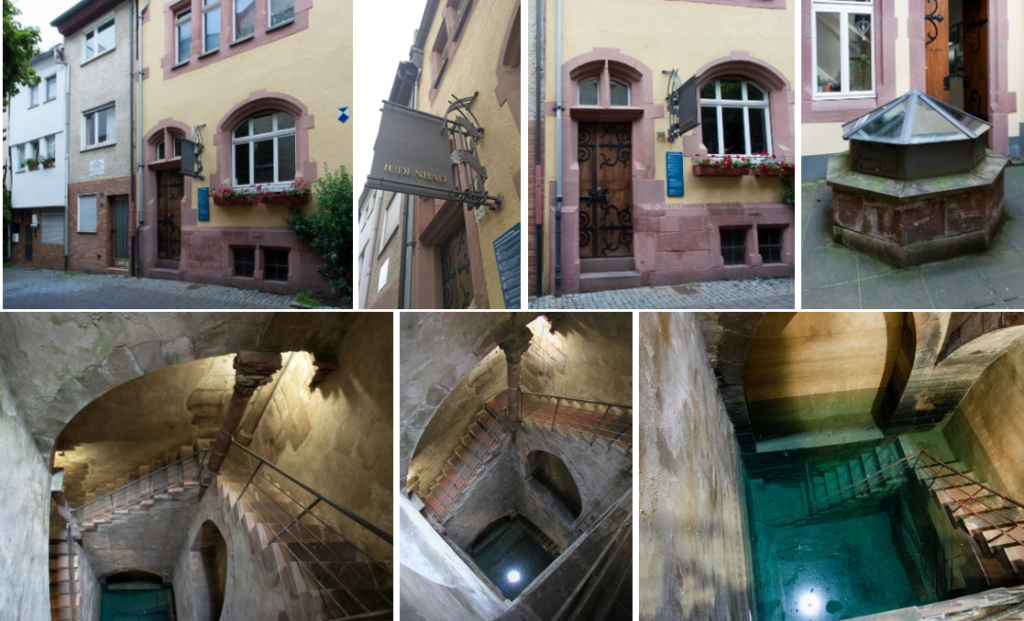
A’harei Mot (אחרי מות – After Death), Leviticus 16:1-18:30. Ezekiel 22:1-16.
The Parsha A’harei-Mot meticulously describes the Yom Kippur ritual, emphasizes the role of the Mikveh for purification and drawing closer to God, stresses the necessity of maintaining sanctity in daily life, and addresses the crucial aspect of morality and ethics in sexual relations.
Leviticus 16 :4
וְרָחַץ בַּמַּיִם אֶת-בְּשָׂרוֹ
Leviticus 16:24, 26 et 28
וְרָחַץ אֶת-בְּשָׂרוֹ בַמַּיִם
And he shall bathe his body in water.
After its renovation in 1957, the Judenbad(1) of Friedberg(2) was opened to the public. This building is located in the former Jewish quarter of the old town, in the Judengasse(3). Dating back to 1260, it is a remarkable example of medieval German-Jewish architecture. The seventy-two steps(4) carved into the basalt lead to a spring-fed pool situated 25 meters deep. An octagonal opening in the Gothic dome allows for an appreciation of the symbolism, complexity, and beauty of the structure.
(1) Judenbad: This is the German term for Mikveh (מִקְוָה), a ritual bath used for purification rites. The word “Judenbad” translates literally to “Jewish bath.”
(2) Friedberg: This German name means “Hill of Peace.” “Frieden” means “peace” and “Berg” means “hill.” The once significant community was decimated during the Holocaust.
(3) Judengasse: This German term literally means “alley of the Jew.”
(4) 72 steps: The number 72 holds special significance in Kabbalah, where it is linked to the Shem Hamphorasch (שֵׁם הַמְּפֹרָשׁ), the secret name of God. This name is derived from verses 19, 20, and 21 of chapter 14 of the Book of Exodus, each containing 72 letters. By rearranging these letters, 72 groups of three letters, or trigrams, are obtained, each considered as an angelic name. When these names are combined, they form the divine name.